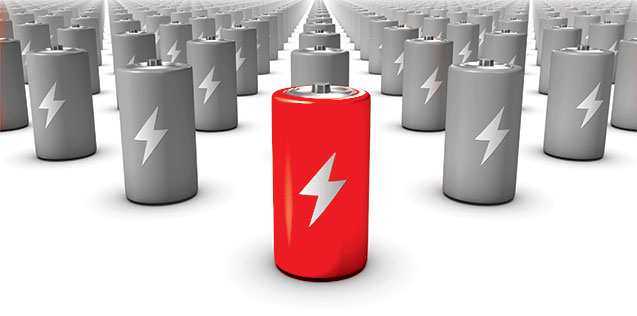Up in Flames: Lithium Batteries Pose Threat When Shipped by Air

The problem
Lithium batteries help power most of the consumer electronics we use on a daily basis. However, as useful as they can be in our daily lives, lithium batteries pose a serious risk when shipped by air because they can self-ignite for a variety of reasons, including damage, manufacturing defects, or when exposed to a heat source. In addition, common aircraft fire-suppression systems are incapable of extinguishing fires caused by these batteries, and it’s still possible to have significant numbers of these batteries on an all-cargo aircraft without the pilots’ knowledge.
The culprits
There are two types of lithium batteries—metal and ion.- Lithium-metal batteries are usually nonrechargeable and power items such as cameras, watches, and smoke detectors.
- Generally rechargeable, lithium-ion batteries are found in cell phones, MP3 players, and laptop computers.
Both of these batteries can burn at very high temperatures and don’t respond well to
suppression measures. They can also explode and emit poisonous gasses.
Current rules
In the recent past, lithium batteries have been implicated in at least three airline accidents that involved fires. Recognizing the risk, many passenger airlines in the United States have voluntarily banned shipments of lithium-ion batteries. Despite the fact that these batteries pose the same risk regardless of the type of aircraft that transports them, lithium-metal batteries are permitted to be shipped in unrestricted quantities on all-cargo airliners.
New ICAO standards
After much deliberation and with ALPA’s input, on April 1 the international community agreed to improve lithium battery safety, and new International Civil Aviation Organization (ICAO) standards went into effect.- Passenger aircraft: Until adequate safety regulations are in place, ICAO has called for a temporary ban on the shipment of lithium-ion batteries on passenger airliners.
- Cargo aircraft: ICAO has called for banning shipments of lithium batteries with more than a 30 percent charge and requiring shipments of excepted batteries to be shipped individually. Previously, a loophole allowed individual packages to be consolidated into a large shipment without being fully declared as dangerous goods.
ALPA Wants
ALPA fully supports the new ICAO regulations and is calling on the U.S. Department of Transportation to, at a minimum, implement these standards for all U.S. carriers within 90 days of enacting legislation.While the new ICAO standards are a move in the right direction, more work needs to be done to ensure the safety of all aircraft. ALPA continues to help drive new international policy that would make it safe to transport lithium batteries by air by advocating for
- pilot notification of all lithium battery shipments aboard an aircraft,
- packaging standards that ensure that if a fire within the package occurs, no hazardous effects are seen outside the package,
- measures that protect packages from the threat of an external fire,
- extending the prohibition of lithium-metal and lithium-ion batteries to cargo aircraft until packaging standards are in place, and
- the full regulation of these batteries as dangerous goods.

